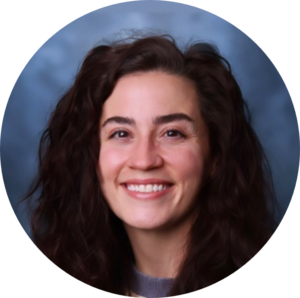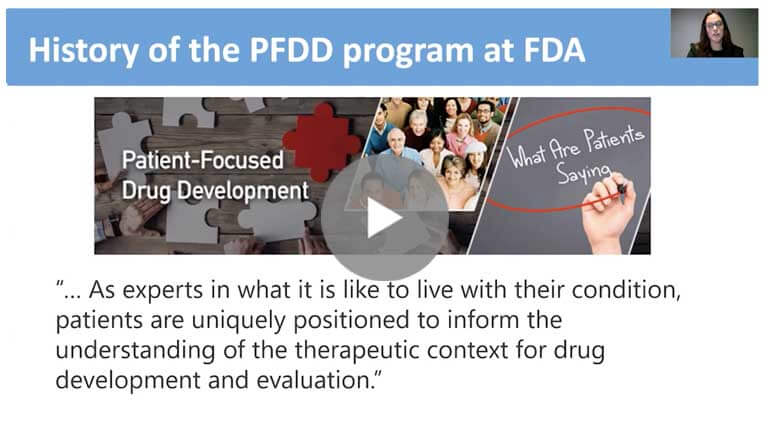NFXF-Led PFDD Meeting for Fragile X Syndrome | March 3, 2021 (original) (raw)
-
- Fragile X 101
* Fragile X 101
* Prevalence
* Signs and Symptoms
* Genetics and Inheritance
* Testing and Diagnosis - Fragile X Syndrome
* Fragile X Syndrome
* Newly Diagnosed
* Fragile X & Autism - Associated Conditions
* Premutation
* FXPOI
* FXTAS
* New Developments - Xtraordinary Individuals
- 31 Shareable Fragile X Facts
- Fragile X Info SeriesFact sheets by topic
- Fragile X MasterClass™️
- Knowledge CenterFrequently asked questions.
- Fragile X 101
-
- Resources for Families
- FXS Strategies by Topic
* Adulthood
* Autism
* Behavior
* COVID-19
* Daily Living
* Females
* Medications
* Physical & Medical Concerns
* Puberty & Sexuality
* School & Education - FXS Resources by Age
- Premutation Topics
* The Fragile X Premutation
* FXTAS Resources
* FXPOI Resources
* Reproductive Resources - Newly Diagnosed
- ResearchLearn and participate
* Research 101What is research?
* STX209 Reconsent ProjectEnrollment is open
* International Fragile X Premutation Registry — For ParticipantsEnroll now
* Participate in ResearchMyFXResearch Portal
* Original Research Articles
* FORWARD-MARCHDatabase and registry
* Research ResultsNew and archives - Find a Fragile X Clinic
* U.S. Fragile X Syndrome Clinics
* FXTAS-Specific Clinics
* International Clinics & Organizations - Find a Contact Near You
- Knowledge CenterOur Fragile X library
- Webinars & Videos
- Printable Resources
- Treatment Recommendations
-
- Resources for Professionals
- NFXF MasterClass™️ for Professionals
- Research Readiness ProgramResearch facilitation for researchers
- NFXF Data Repository
- International Fragile X Premutation Registry — Research Requests
- FORWARD-MARCHRegistry & Database
- NFXF-Led PFDD Meeting for Fragile X SyndromePatient-focused drug development
- Marketing Your Research Opportunities
- Treatment Recommendations
- Fragile X Clinics
* U.S. FXS Clinics
* FXTAS-Specific Clinics
* International Clinics & Organizations - NFXF RESEARCH AWARDS
* Randi J. Hagerman Summer Scholar Research Awards
* Junior Investigator Awards
Get
Involved-
- Fragile X 101
* Fragile X 101
* Prevalence
* Signs & Symptoms
* Genetics and Inheritance
* Testing and Diagnosis - Fragile X Syndrome
* Fragile X Syndrome
* Fragile X & Autism - Associated Conditions
* Premutation
* FXPOI
* FXTAS
* New Developments - Xtraordinary Individuals
- 31 Shareable Fragile X Facts
- Fragile X Info Series
- FRAGILE X MASTERCLASS
- Knowledge Center
- Fragile X 101
-
- Resources for Families
- FXS Strategies by Topic
* Adulthood
* Autism
* Behavior
* Daily Living
* Females
* Medications
* Physical & Medical Concerns
* Fragile X and Puberty & Sexuality
* School & Education - FXS Resources by Age
- Premutation Topics
* The Fragile X Premutation
* FXTAS Resources
* FXPOI Resources
* Reproductive Resources - Newly Diagnosed
- Research
* Research 101: What is Research?
* STX209 Reconsent Project
* International Fragile X Premutation Registry — For Participants
* Participate in Research
* Original Research Articles
* FORWARD-MARCH
* Research Results Roundup - Find a Clinic Near You
- Find a Contact Near Your
- Knowledge Center
- Webinars & Videos
- Printable Resources
- Treatment Recommendations
-
- Resources for Professionals
- NFXF MasterClass™️ for Professionals
- Research Readiness Program
- NFXF Data Repository
- International Fragile X Premutation Registry — Research Requests
- FORWARD-MARCH Registry & Database
- NFXF-Led Patient-Focused Drug Development Meeting
- Marketing Your Research Opportunities
- Treatment Recommendations
- Find a Clinic Near You
- NFXF Research Awards
* Randi J. Hagerman Summer Scholars
* Junior Investigator Awards
NFXF-Led Patient-Focused Drug Development Meeting
NFXF-Led Patient-Focused Drug Development MeetingDany Petraska2023-11-03T12:51:45-04:00
March 3, 2021
The NFXF-Led Patient-Focused Drug Development Meeting for Fragile X Syndrome
- Voice of the Patient Meeting Report
- Meeting Recording — A recording of the entire meeting is now available, on demand.
- Public Docket — Closed as of Monday, May 3, 2021.
- Message to All Who Participated
- Agenda
- FAQ
- Community Forum — A pre-meeting community forum, held January 20, 2021.
- Contact
DOWNLOAD
Voice of the Patient Report:
A Patient-Focused Drug Development Meeting for Fragile X syndrome
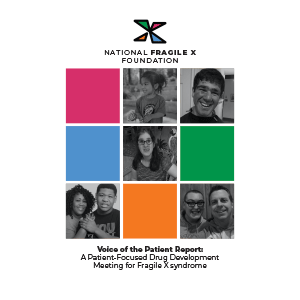 Enter your information in the form below to download a copy of the report. You will also receive a link to the PDF by email that you can access any time.
Enter your information in the form below to download a copy of the report. You will also receive a link to the PDF by email that you can access any time.
What is this? On March 3, 2021, the National Fragile X Foundation held its externally led patient-focused drug development meeting. Next, a public docket was available for 60 days following the meeting, which ended May 3, 2021.
The meeting itself and the information provided through the open public docket were used to write up our final report to share with the community, and to be given to researchers initiating drug trials in FXS. The Food & Drug Administration is also hosting a link back to this page on their External Resources and Information Related to Patient Experience webpage**.**
Why hold a patient-focused drug development meeting? NFXF believes all research should be patient-centric. There should be no treatments developed for Fragile X without the community having a say, so we — the National Fragile X Foundation — secured an externally led patient-focused drug development (also known as PFDD) meeting for Fragile X syndrome, which was live-streamed online March 3, 2021.
To learn more, fill out the form here to download the final report.
WATCH
The Patient-Focused Drug Development Meeting for Fragile X Syndrome
Enter your information in the form below to receive a link to the full recording that you can watch any time.
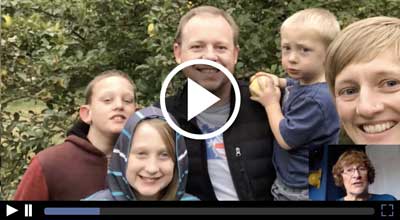
What you’ll see and hear: Check out the full agenda listed below, including presenters, panelists, and discussion questions.
Each disease gets only one PFDD meeting, which the FDA uses to better understand the patient’s (and their caregivers) perspective when making decisions about new treatments. Originally recorded March 3, 2021.
A Message from Hilary Rosselot
March 3, 2021
Thank you.
We’re so excited to hear from self-advocates and parents, caregivers, and other family members of loved ones with Fragile X syndrome.
We know there are good days with big and small wins. We also know there are challenging days that are sometimes indescribable.
This community has incredible strength and vulnerability, and at the National Fragile X Foundation we work hard to make sure each day is just a bit better for you.
We want to provide support and resources for all your days.
We want to provide opportunities to elevate your voice in meaningful ways that make an impact.
The PFDD meeting today is just one of those ways we elevate your voice.
Sharing your stories . . . or rather, your realities . . . will inspire and inform the future of drug development in Fragile X syndrome.
Thank you for sharing your wants, needs, perspectives, and insights.
Thank you for all you do for your loved ones with Fragile X.
It’s a journey, and we’re here to walk it with you.
—Hilary Rosselot
10 – 10:05 AM
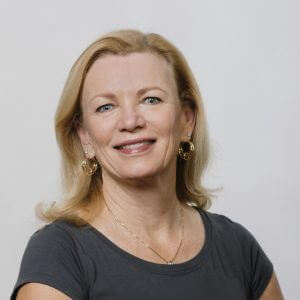
Welcome
Linda Sorensen
Executive Director, National Fragile X Foundation
Linda is the National Fragile X Foundation’s Executive Director and has been a member of the NFXF team since 2004. She has over 25 years of experience in non-profit programs, operations management, and board and volunteer development. She earned a BA degree in Psychology and an MS degree in Adult Education and Organizational Development. She loves the company of her family and friends and enjoys golf, along with entertaining, traveling, and reading great books.
10:05 – 10:10 AM
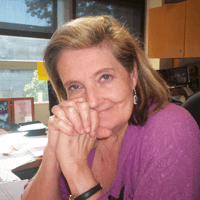
opening remarks
Randi Hagerman, MD
University of California, Davis MIND Institute & Founder of the National Fragile X Foundation
Dr. Hagerman is a Developmental and Behavioral Pediatrician who has worked in the fragile X field for over 30 years on both FXS and premutation disorders. She is at the MIND Institute at UC Davis where she holds an Endowed Chair in Fragile X Research and she runs the Clinical Trials Program and is the Medical Director of the MIND Institute. She has published over 400 articles related to fragile X and related disorders. She recently introduced the term FXAND and the controversy surrounding this term is the topic for this workshop.
10:10 – 10:20 AM
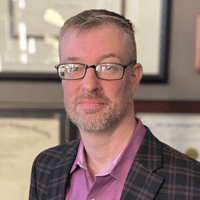
Overview — FDA’s Patient-Focused Drug Development Initiative
Bernard Fischer, MD
Deputy Director for the Division of Psychiatry (Office of New Drugs), FDA
Dr. Fischer is a psychiatrist and Deputy Director for the Division of Psychiatry in the Office of New Drugs at the FDA. Prior to coming to the FDA, he spent more than 10 years in academic medicine researching schizophrenia at the Maryland Psychiatric Research Center (MPRC) and the Department of Veterans Affairs.
Dr. Fischer earned his medical degree from the Medical College of Virginia. He completed a five-year research/clinical residency in psychiatry at the University of Maryland/Sheppard Pratt followed by a post-doctoral fellowship in schizophrenia research at the MPRC. He holds a master’s degree in biomedical ethics and has been board certified in both psychiatry and addiction medicine. He has authored or co-authored over 50 scientific publications.
10:20 – 10:30 AM
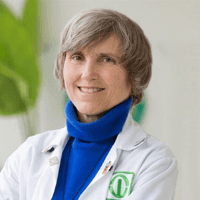
Overview — Fragile X Syndrome and Current Treatment Options
Elizabeth Berry-Kravis, MD, PhD
Professor of Pediatrics, Neurological Sciences and Biochemistry, Rush University Medical Center
Dr. Berry-Kravis is a Professor of Pediatrics, Neurological Sciences, and Biochemistry at Rush University Medical Center in Chicago. She established the Fragile X Clinic and Research Program in 1991, providing care to over 700 patients with fragile X syndrome (FXS) since that time.
Her research has included studies of medical issues, epilepsy and psychopharmacology in FXS, neurological problems in FXTAS, and in particular translational work in FXS including outcome measures and biomarkers, natural history, newborn screening, and clinical trials of new targeted treatments in FXS. Her laboratory studies the relationship between FMRP and clinical function, and methods for optimizing genetic testing in FXD.
In the past 18 years, she has been site or national PI on 24 clinical trials in FXS and numerous NIH-and CDC-funded projects on FXS. She is on the Scientific and Clinical Advisory Committee for the NFXF. She is Chair of the Clinical Committee of the FXCRC.
She has received the Jarrett Cole Award for clinical work in FXS in 2002, the Hagerman Award for excellence in FXTAS research in 2004, the FRAXA Champion Award in 2011, the NFXF William and Enid Rosen Research Award in 2014, the March of Dimes Jonas Salk Research Award in 2015, the American Academy of Neurology Sidney Carter Award in Child Neurology in 2016 and the John Merck Fund Sparkplug Award in 2016, all for work in FXS.
10:30 – 10:40 AM
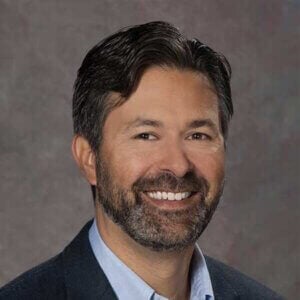
Overview — Clinical Trial Endpoints/Outcome Measures (or lack thereof)
David Hessl, PhD
Professor of Department of Psychiatry, UC Davis
Dr. Hessl is a Professor in the Department of Psychiatry at UC Davis, a licensed clinical psychologist, and the head psychologist at the Fragile X Research and Treatment Center at the UC Davis MIND Institute.
His research for the past 22 years has focused on the neuropsychological and psychophysiological assessment and treatment of individuals with neurodevelopmental disorders, with a primary focus on fragile X-associated disorders, autism spectrum disorder and Down syndrome. He directs the Translational Psychophysiology and Assessment Laboratory (T-PAL) at the MIND Institute, which is primarily devoted to development of novel outcome measures for use in clinical trials for individuals with neurodevelopmental disorders. He serves on the National Fragile X Foundation’s Clinical Trials Committee. Finally, he and Dr. Susan Rivera are PI’s of a program of research focused on neuropsychological and neurological changes in adult carriers of the fragile X premutation who are at risk for FXTAS.
10:40 – 10:45 AM

Overview — Discussion Format
Linda Sorensen
Executive Director, National Fragile X Foundation
10:45 – 11:15 AM
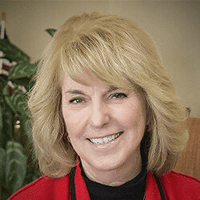
Marcia Braden, above, moderated a panel of individuals and caregivers who provided comments to start the discussion on current approaches to treating Fragile X syndrome.
Topic 1 — Health Effects and Daily Impacts of Fragile X Syndrome
Marcia Braden, PhD
Clinical Psychologist
Dr. Braden is a licensed psychologist with a clinical practice specializing in children and adolescents. She is a former teacher with experience teaching general and special education. She has written and published numerous articles related to education and behavior management strategies, techniques, and interventions. She is a contributing author to the book “Fragile X Syndrome; Diagnosis, Treatment, and Research,” compiled and edited by Randi and Paul Hagerman, and “Children with Fragile X Syndrome: A Parent’s Guide,” edited by Jayne Dixon Weber. She is the author of “Fragile — Handle With Care: More About Fragile X Syndrome.”
1. Which 1-3 symptoms of FXS have the most significant impact? Are there specific activities or skills that are impacted.
2. How does FXS impact daily life on the best days? How about the worst days?
3. How has your/your child’s FXS changed over time? Is today different than the past? Why or why not?
4. What worries you most about your/your child’s FXS?
Emily Mack
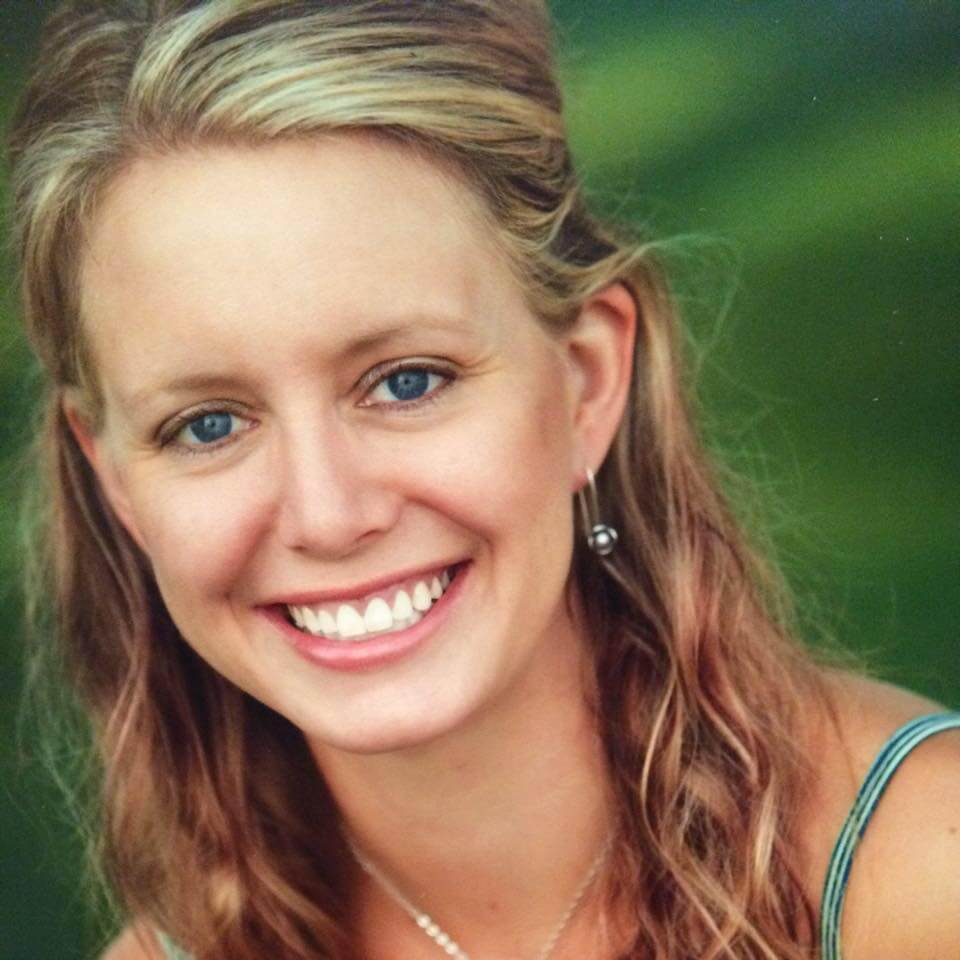 My husband and I are the proud parents to our blended family of five kids. We were introduced to Fragile X in February 2011 after our son was diagnosed at two years old. We are fortunate to work with Dr. Craig Erickson at the Cincinnati FX clinic and have participated in several research studies.
My husband and I are the proud parents to our blended family of five kids. We were introduced to Fragile X in February 2011 after our son was diagnosed at two years old. We are fortunate to work with Dr. Craig Erickson at the Cincinnati FX clinic and have participated in several research studies.
I have worked in corporate wellness as an exercise physiologist and wellness coach for the past 22 years at a large hospital system, on-site worksite wellness programs, and in private practice. I’m driven by the desire to ensure that the NFXF continues to play an integral role in the lives of families, educate our communities, and facilitate research. I have been a member of the NFXF Board of Directors since 2015 and am currently serving as president.
Larry Krantz
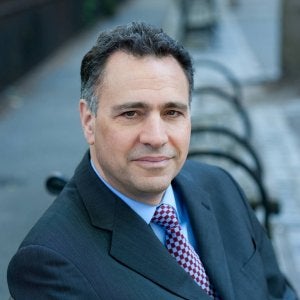 I am the proud father of a 23-year-old son, Tyler, who was diagnosed with fragile X syndrome at the age of three. He has as kind a heart as anyone I know. I also have a 25-year-old, Sasha, now in college, whose life has been affected by Fragile X. I am honored to have joined the NFXF board and have worked tirelessly to help the NFXF raise awareness, provide support to those affected, and assist in finding treatments and a cure. It is a mission of love for me!
I am the proud father of a 23-year-old son, Tyler, who was diagnosed with fragile X syndrome at the age of three. He has as kind a heart as anyone I know. I also have a 25-year-old, Sasha, now in college, whose life has been affected by Fragile X. I am honored to have joined the NFXF board and have worked tirelessly to help the NFXF raise awareness, provide support to those affected, and assist in finding treatments and a cure. It is a mission of love for me!
Denise Devine
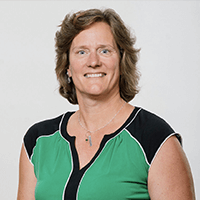
I live in Hadley, Mass., with my husband, Gerry, my son, Patrick, and my daughter, Kelley. We own a home-based business called Devine Overhead Doors. We raised our family in Hadley, and are active in our community.
Our son has Fragile X syndrome and attends the day program at Riverside Industries. Our daughter is co-leader of the NFXF Sibling and Self Advocate Network. We have run the Western Massachusetts Chapter of the National Fragile X Foundation for over 20 years. One of our missions is to spread awareness.
I have attended and set up a resource table at the Autism Connections annual conference for the last 10 years. There I provide information to parents about Fragile X and advise them to seek testing if they think it sounds like their child, I also provide information to professionals to pass on to the families they work with.
In my spare time I enjoy kayaking, hiking, biking, yoga, and walking, mostly with friends. I also volunteer for non-profit groups in our town, particularly those involved with developmental disabilities.
Tim Geels
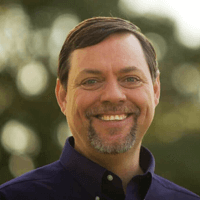
My wife Jammie and I live in McCook Lake, South Dakota. I am the father of three boys, Andrew (28), Tyler (14), and Austin (10). I earned a bachelor’s degree in sociology with a concentration in criminal justice and religion from Northwestern College in Orange City, Iowa, and a master’s in management from American Public University. I became certified in leadership development through the University of Nebraska’s Heartland Center for Leadership Development in 1998, and became a member of the National Training Faculty of The Mandt System® in 2001, where I am currently the director of implementation and governance.
I am a co-author of “Supporting People with Complex Behaviors” and “Autism: Supports Through the Spectrum.” My middle son, Tyler, was diagnosed with fragile x syndrome in 2009. As a parent of a child affected by a developmental disability, as well as a professional in the field, I bring a unique blend of personal and professional insights into my presentations.
Jackie T.
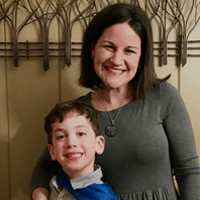
I am a wife to Troy, and the mom of two amazing children, Eve (age 13) and Daniel (age 9). My son, Daniel, has the full mutation and was diagnosed with Fragile X syndrome at age two. I am proud to be an advocate for Fragile X and for my son. I will always be Daniel’s #1 fan and will never stop believing in him! I enjoy spending time with my family and friends and love traveling and spending time in nature.
David Tillman
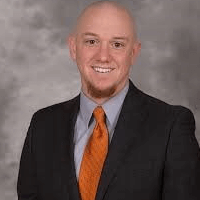
I am the proud parent of three children, including Miles, a six-year-old living with Fragile X syndrome. I work in public health to promote health equity. When not working or caring for Miles, I volunteer to support the National Fragile X Foundation and the Special Olympics. In Fall 2020, I created the Xtraordinary Miles Campaign and ran a marathon completely barefoot to raise awareness of Fragile X syndrome. To entertain ourselves during the pandemic, Miles and I enjoy playing musical instruments, singing show tunes as loudly as possible, and hiking nearby Raven Rock State Park.
Caroline Bridges
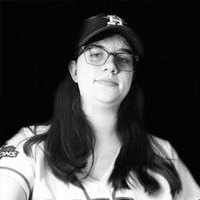
My name is Caroline Bridges. I am 17 years old and have Fragile X syndrome. I live in Houston and attend Kingwood High School. I am involved in Girl Scouts and am working on my Gold Award. I have also enjoyed learning how to drive a car through the SafeWay program. I enjoy working out at Orange Theory, collecting dolls, and traveling.
Laurie Bridges
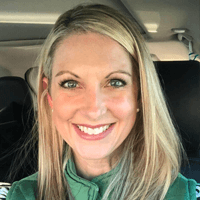
I am an occupational therapist and Will and I are the proud parents of Caroline (full mutation) and Clark. I have worked as an OT since 1999 and currently work in the Humble Independent School District near Houston. Not long after Caroline was diagnosed with Fragile X syndrome, Will and I began serving Fragile X families in the Houston area by forming an NFXF Community Support Group in 2011. I have attended five NFXF International Fragile X Conferences and was co-chair of the host committee for the 2016 conference in San Antonio.
Since the beginning of this Fragile X journey, we have been thankful for the National Fragile X Foundation and how it supports families, promotes education and awareness, and puts a priority on research. We keep moving forward and taking the next step. We are thankful for our Fragile X family because we are not alone!
11:15 AM – 12:15 PM
![]()
Topic 1 — Large-Group Facilitated Discussion
Moderated by the NFXF team, individuals and caregivers in the audience are invited to add to the dialogue.
12:15 – 12:30 PM
Break
12:30 – 1 PM

Dr. Craig Erickson, above, moderated a panel of individuals and caregivers who provided comments to start the discussion on current approaches to treating Fragile X syndrome.
TOPIC 2 — Current Approaches to Treatment
Craig Erickson, MD
Associate Professor of Pediatrics and Psychiatry, Cincinnati Children’s Hospital Medical Center
Dr. Erickson is an associate professor of pediatrics and psychiatry at Cincinnati Children’s Hospital Medical Center. He founded a fragile X clinic initially in Indianapolis and then moved the program to Cincinnati, where he has a large Fragile X clinic and sees over 200 patients. He has been involved in clinical trials for translation of targeted treatments to patients with FXS and ASD for over 12 years, and has done extensive work on biomarkers and outcome measures for use in these clinical trials. He is currently the chair of the Clinical Trials Committee of the Fragile X Clinical and Research Consortium (FXCRC).
1. If you had to choose, what are the top symptoms of FXS you would most like a treatment to target?
2. What are you doing now to treat FXS? What factors do you consider when choosing a treatment? How has your treatment regimen changed over the years? Do you consider it effective?
3. What are the biggest gaps in you/your child’s current treatment(s)? What are the biggest downsides?
4. What specific things would you look for in an ideal treatment for you/your child’s FXS? Think about how much of a change/effect you would need to see to use a new treatment assuming there may be mild-moderate side effects.
a. What impact level would convince you to trial a treatment? For example, a treatment that positively affects what % of patients with FXS.
Missy Zolecki
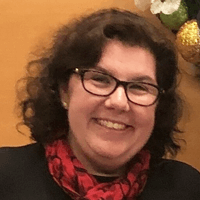
My husband, Mark, and I relocated from Plainfield, Illinois, and currently live in Lakewood Ranch, Florida. We are the proud parents of three children, Matt, Paige, and Jack. Matt (19) was diagnosed with Fragile X syndrome at birth. I attended my first NFXF International Fragile X Conference in 2002 in Chicago. I have been an active volunteer for the NFXF in various roles since 2010 and joined the NFXF staff in November 2018 as director of community engagement. Prior to joining the NFXF team, I worked as a registered nurse in the emergency department for 23 years. I have presented to educators, professionals, and service organizations about Fragile X in addition to being a faculty member at past NFXF conferences. In my free time, you will likely find my Disney-loving family enjoying or planning our next visit to one of the many Disney destinations.
Leslie Wieber
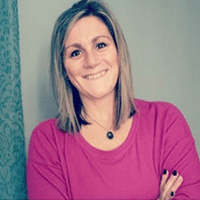
My name is Leslie Wieber. I was born and raised in Cincinnati and have lived in Taylor Mill, Kentucky, for the last 15 years. My husband and I, with our partner, have owned and operated our solar company in Milford, Ohio, since 2009. We have three boys with Fragile X syndrome, ages 12, 10, and 9. Our boys, Brock, Drew, and Tyrus are under the care and treatment of the Cincinnati Children’s Hospital Fragile X Research and Treatment Center. I work part-time at Icon Solar and am a mom full time. I love any hiking, biking, and try to join in our local volleyball leagues with friends in my spare time. I have a newfound love of audiobooks! We are constantly outdoors with our boys and are unofficial “Bigfoot Hunters” so that we make it fun to go out on trails and hikes for, hopefully, the search that never ends!
Alexis Davis
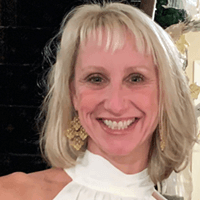
My name is Alexis Davis and I live in Towson, Maryland (outside Baltimore), with my husband, Evan, our four children, and boxer Otis. Our second daughter, Cece, is 16 and lives with Fragile X syndrome, as do my two nephews, Buddy and Joe. I am a program management executive and own a small manufacturing business outside Philadelphia where I grew up. I enjoy many physical activities including tennis/paddle/squash, yoga, swimming, skiing, and anything that gets me outdoors! Not only because they are fun, but more than ever I see how staying active is best for managing mental health and well being. As a family we continue to enjoy time in St. Augustine, Florida, where I have been visiting since childhood. I love spending time with my family laughing around the dinner table, especially during these COVID times.
Kara Frech
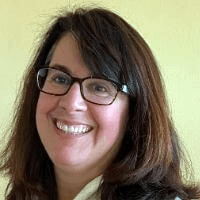
I am the mother of two boys, ages 17 and 15, with Fragile X syndrome. I am a former management consultant specializing in customer relationship management solutions for the financial services and pharmaceutical industries and am now a stay-at-home parent. Upon diagnosis, I immersed myself in all things Fragile X to learn how to help my boys lead successful, fulfilling lives. I currently volunteer as the leader of the NFXF Southeast Pennsylvania Chapter and recently joined the board of the National Fragile X Foundation. My husband, Steve, and I reside in Berwyn, Pennsylvania. When I do get a break, I enjoy paddle, golf, cooking, crafts, and going to the beach.
Lindsay Pullen
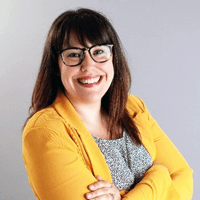
I was born and raised outside of Philadelphia, where I currently live with my two sons, Elliott and Asa. Elliott was diagnosed with Fragile X syndrome at two years old, leading our family to discover that I, my two sisters, as well as my mother and three maternal aunts are all carriers of the premutation. For the last two years I’ve prioritized learning as much as I can about Fragile X, and becoming a passionate advocate for Elliott. During working hours, I lead brand and content marketing for a nonprofit online university. Outside working hours, I spend much of my time pretending to be a dinosaur and refereeing nerf battles.
Jennifer Barber
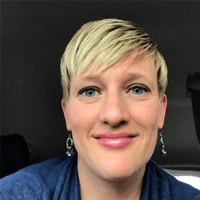
I am from Byron, Minnesota, and work as a registered nurse in a Level 1 trauma center emergency department. I am the mother to three children, Nate (12), Rylee (10), and Finley (4). Nate and Rylee live with FXS, and Finn is unaffected by way of IVF with PGD. I am an active member of the National Fragile X Foundation and have been since their diagnosis in 2010. I have participated in and served in many roles with the NFXF, including chapter leader of the Central Coast California group in 2014–2019, West Regional Leader 2018–present, Minnesota Chapter Leader 2019–present, FXCRC Family Advisory Council, Advocacy Day mentor and participant, and NFXF International Fragile X Conference participant and presenter. On numerous occasions, I have presented to medical professionals, school educators, students, and local colleges about Fragile X syndrome. In my spare time, I enjoy spending time with my family, traveling, playing sports, hiking, camping, and reading books.
1 – 2 PM
![]()
Topic 2 — Large-Group Facilitated Discussion
Moderated by the NFXF team, individuals and caregivers in the audience are invited to add to the dialogue.
2 – 2:05 PM

CLOSING REMARKS
Linda Sorensen
Executive Director, National Fragile X Foundation
Frequently Asked Questions
Please check out the FAQs below for more details. If you have questions about the PFDD meeting, please contact Hilary Rosselot.
Patient-focused drug development (PFDD) is a systematic approach to help ensure that patients’ experiences, perspectives, needs, and priorities are captured and meaningfully incorporated into drug development and evaluation.
The patient perspective is critical in helping the Food and Drug Administration understand the context in which regulatory decisions are made for new drugs. PFDD meetings give the FDA and other key stakeholders, including medical product developers, health care providers, and federal partners, an important opportunity to hear directly from patients, their families, caregivers, and patient advocates about the symptoms that matter most to them, the impact the disease has on patients’ daily lives, and patients’ experiences with currently available treatments. This input can inform FDA’s decisions and oversight both during drug development and during FDA’s review of a marketing application.
An externally-led patient-focused drug development (EL-PFDD) meeting uses the process established by FDA-led PFDD meetings, the host is just different.
The FDA has conducted over 25 disease-specific meetings since 2012. The FDA now encourages externally-led PFDD meetings, which means the planning and hosting of the meeting is taken on by an outside group. Many patient advocacy organizations, like NFXF, take on the role of planning and hosting the meeting.
NFXF applied to host an EL-PFDD meeting for Fragile X syndrome because we felt there was a need for patient input in the development of treatments for FXS. This community has experienced several failed trials, and the opportunity to share your experience to guide future drug development is powerful. NFXF has built programming like the NFXF Research Readiness Program to support the patient and expert voice in research and hosting a PFDD meeting amplifies your voice even more. The purpose of PFDD meetings is to hear directly from patients, their families, caregivers, and patient advocates.
In addition to posting the video of the meeting, the community was also able to comment on the meeting for 60 days (closed as of Monday, May 3) after the meeting concluded. NFXF will next write up a final report of the meeting and share it with the community. This report will be given to any researcher that initiates a drug trial in FXS. FDA may host our final report on their website.
Update: The FDA has a link to our final report on their External Resources and Information Related to Patient Experience webpage.
PFDD Meeting Community Forum
With Drs. Randi Hagerman, Liz Berry-Kravis, and Craig Erickson
JAN 20, 2021 — Hilary Rosselot hosted a community forum to share more about what to expect during and after the PFDD meeting, including details on how to participate and prepare, and what outcomes we might expect from the meeting.
Drs. Randi Hagerman, Liz Berry-Kravis, and Craig Erickson shared more on why this meeting will make a difference for Fragile X, and why it’s important for Fragile X parents, caregivers, and self-advocates to share what is most important to them in relation to drugs and treatments.
PFDD Meeting Community Forum
Registration
NFXF-Led Patient-Focused Drug Development Meeting on Fragile X Syndrome
Please complete the information in Section 1 to register.
Section 2 is not required — but is encouraged if you are a self-advocate or a parent/family member/caregiver of an individual with Fragile X syndrome. All comments will be integrated into the public docket and into the final report to be published on the website and shared broadly with the community.
Once submitted, you will receive a confirmation email (to the email account you provide), followed by the meeting invitation and instructions closer to the meeting date.
Questions?
If you have questions about anything research-related, we’d love to hear from you! You can reach out to Anna De Sonia directly, or submit your question or comment through our contact form below.
